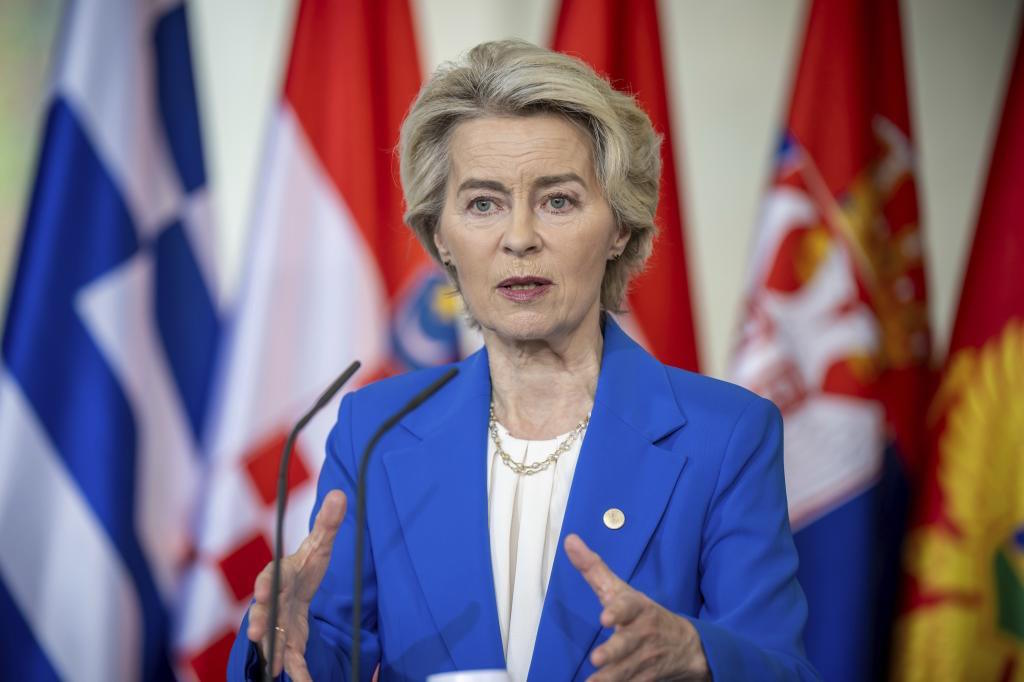Hungarian Viktor Orban, who also holds the rotating presidency of the European Council until the end of the year, is a staunch supporter of migrant reception centers outside the European Union. Slovakia's Robert Fico also does this, and in Austria or the Netherlands, the most voted parties are in favor of controlling immigration and argue that it is necessary to establish them. The Italian government of Giorgia Meloni, in fact, has already implemented this system through an agreement with Albania sending 16 immigrants to this Balkan country in the last hours.
In addition to all these radical or extremist governments, sources from the European Commission recall that last May, President Ursula von der Leyen received the initial request from 15 countries, a number that later increased to 17, to begin studying control points beyond the EU. Among these nations are countries with such diverse governments as Denmark, Finland, Poland, the Czech Republic, Bulgaria, Estonia, or Greece.
"There is clearly a majority of member states requesting that this option be considered and debated," they continue in Brussels, after Von der Leyen sent a letter to the member countries in which she indeed proposes to work on "innovative solutions to contain illegal immigration" and "explore possible ways to advance the idea of developing return centers outside the EU." "Migration will continue to be one of the most pressing issues requiring our attention," emphasizes the German text.
The May document referred to by the Commission was published just a few days after the European Pact on Migration and Asylum was approved, aimed at migrants rescued at sea. Spain was the only frontline maritime country that did not support it. Following Von der Leyen's letter, Minister Pilar Alegría, spokesperson for the Spanish government, explained in her statement that "Spain has expressed its opposition", as reported by Raúl Piña.
"We should continue exploring avenues"
"We should continue exploring possible ways to advance the idea of developing return centers outside the EU, especially with a view to a new legislative proposal on returns," is the reflection that Von der Leyen conveys to her partners, on the eve of a new European Council meeting this week in Brussels.
The Commission emphasizes that the return policy "is not working" and that action is necessary. The debate and possible measures to be taken are in a very early stage; it is not at all clear how these immigrant centers outside the borders of the European Union would be developed. They explain in Brussels that it would apply to immigrants who have already been denied the right to stay in the corresponding member country.
In her letter, Von der Leyen points out that the Italy-Albania system implemented by Meloni will allow for "practical lessons to be drawn," and undoubtedly, the Council meeting taking place this week in the EU capital, with immigration, the situation in the Middle East, and Ukraine as main issues, will be crucial.
The conclusions of the document seem very interesting, or even the lack of conclusions if there is any veto against the attempt to introduce the need for reception centers or if, on the other hand, there are countries for which the agreed measures are insufficient. But the Commission insists that there is a "broad majority" wanting to address the debate in this direction, and this is what the President of the Commission will do not only in the coming days but also in the coming months and even years.
Additionally, just a few days ago, another 17 countries requested a "paradigm shift" in the immigration model. "People without the right to be in EU territory must be held accountable," they stressed in this text, where once again, Denmark and Italy were present, but also France and Germany, which were not in the initial document referred to by the Commission.
Once again, a very relevant mix of countries, sensitivities, and political orientations. And a clear indication that in Europe, there is a widespread belief that it is necessary to control migratory movements.
